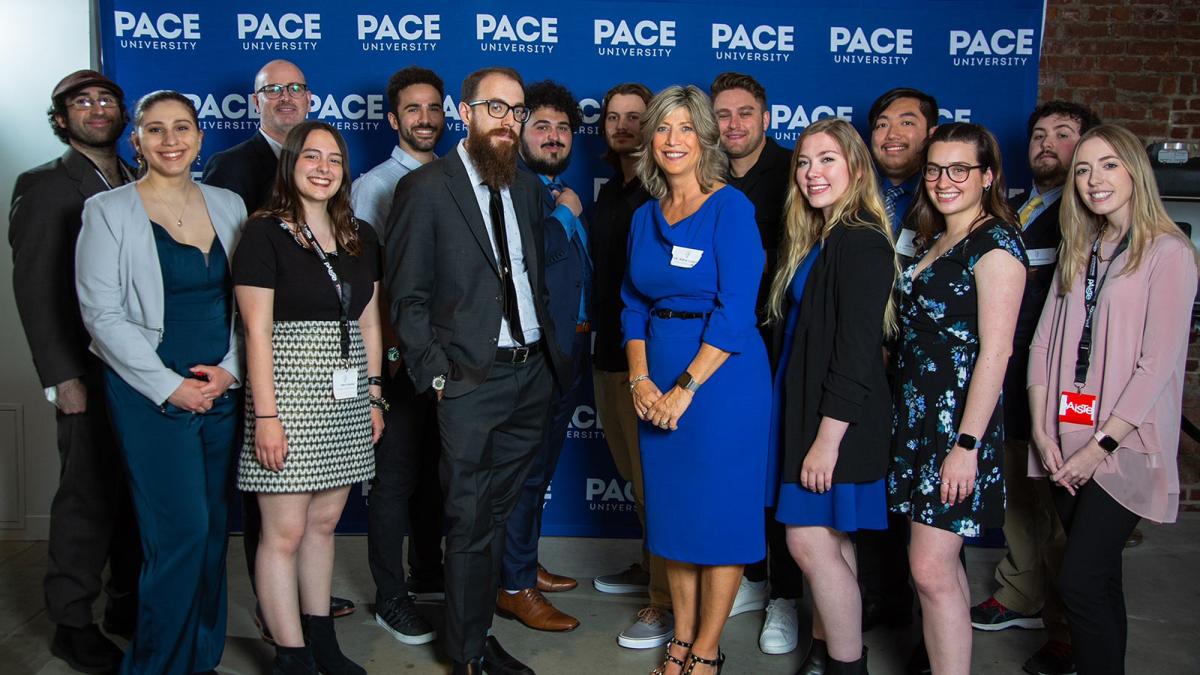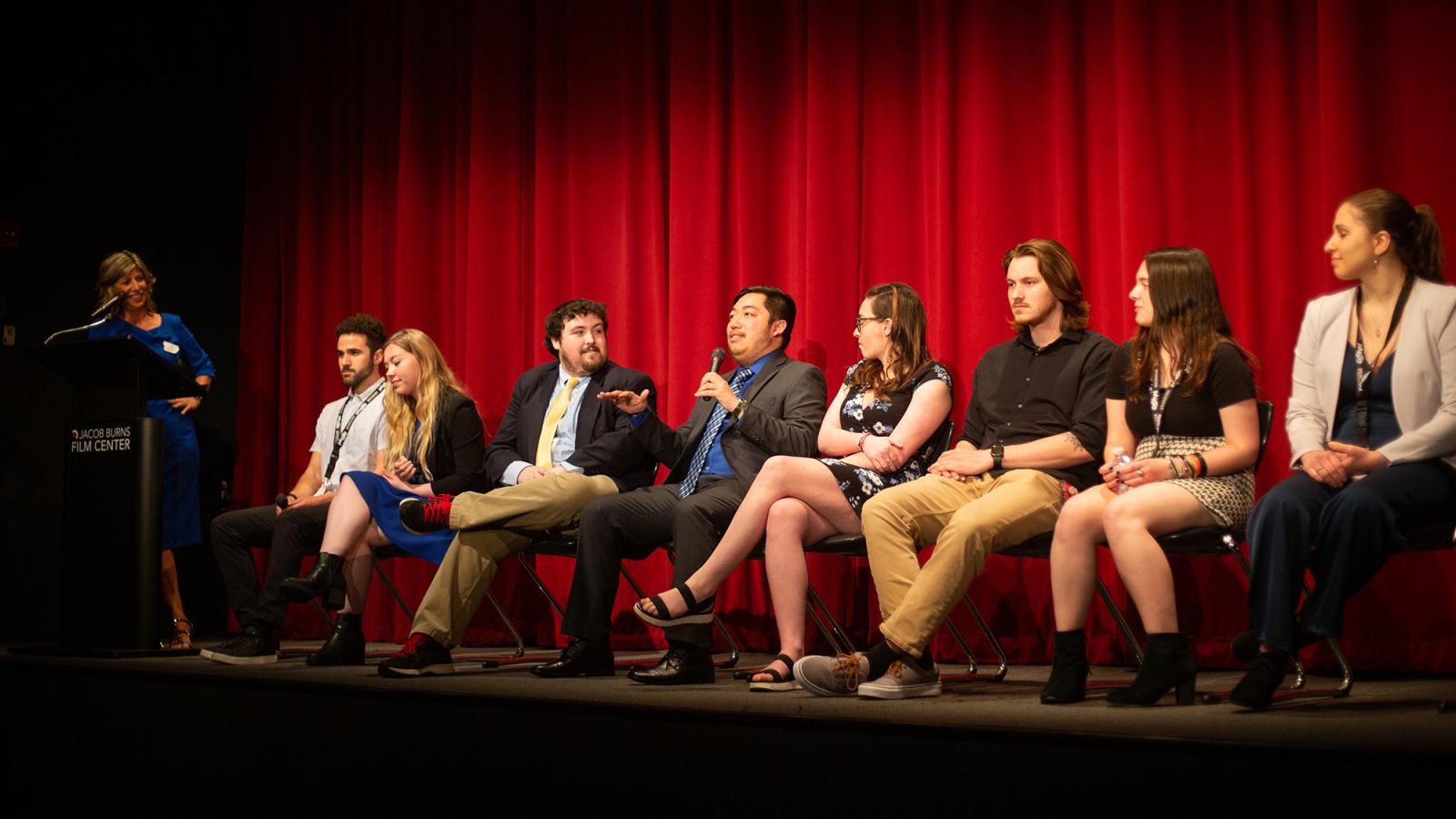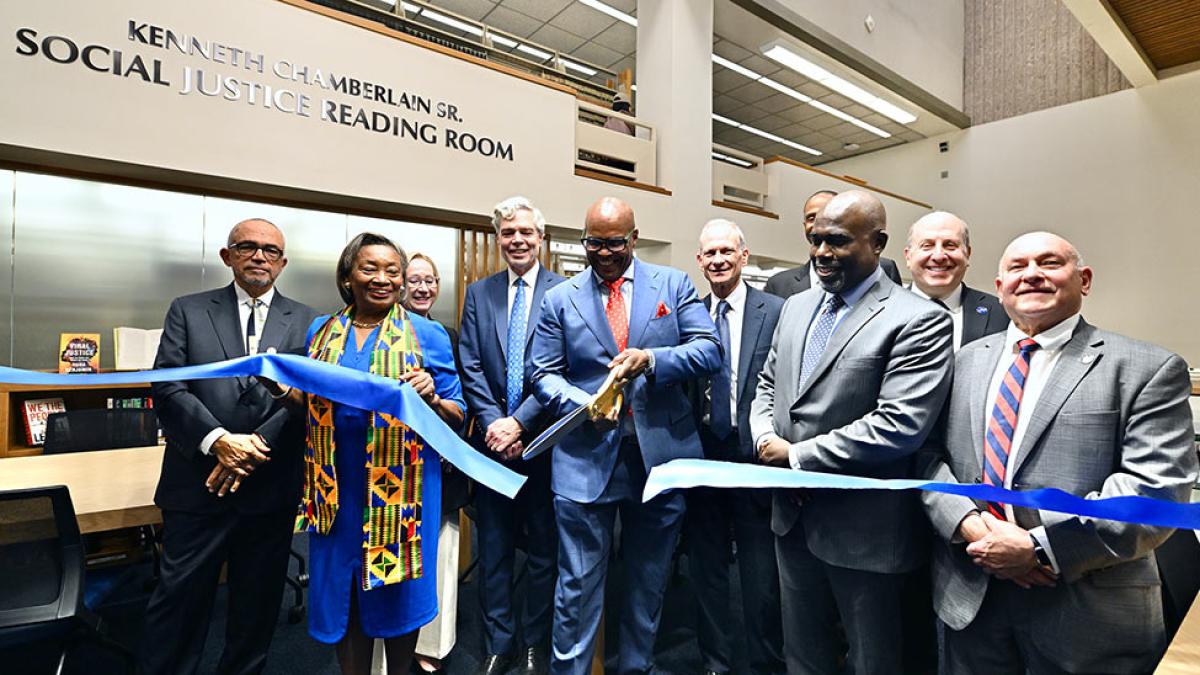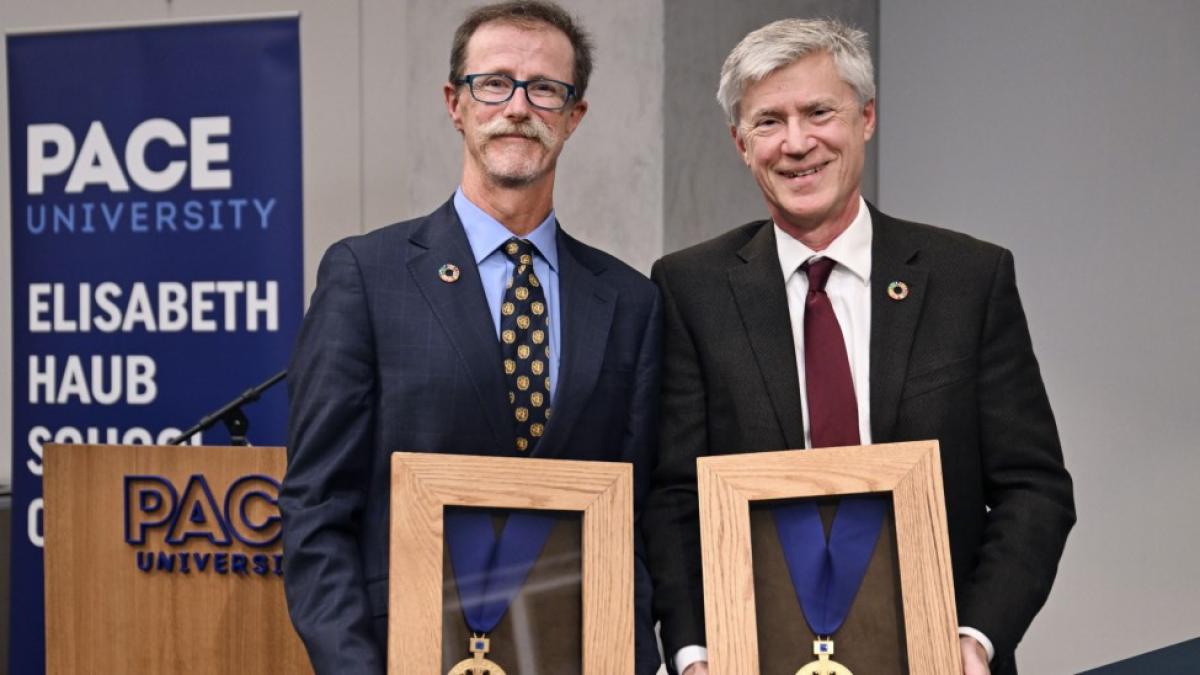
Pace University Premieres Tide to Table Documentary at Jacob Burns Film Center

The PaceDocs Team focuses its film on the remarkable journey of oysters, their farmers, and their role in cleaning the water Announces Three Additional Showings throughout Cape Cod in June
Pace University’s documentary film team – PaceDocs – last night premiered Tide to Table: The Remarkable Journey of Oysters at the Jacob Burns Film Center.

More than 200 people turned out for the event, which was the first in-person premiere for the program since 2019, before the pandemic. The film continues a distinguished tradition of producing documentaries that shine a light on important environmental issues.
Tide to Table documents how oysters rely on the ebb and flow of the tide for flavor. One oyster can filter up to 50 gallons of water per day; their survival is determined by their farmers, deeply rooted in their tradition and connection to the sea. The documentary, filmed on-location across the flats of Cape Cod, the shores of Connecticut’s Long Island Sound, and the urban waterways of New York City, features scientists, historians, shellfish constables, and farmers. It explores the serendipitous relationship between nature, oyster farmers, modern aquaculture technology, and a movement to better understand their ecological value, while showing how oysters are thriving in areas such as Cape Cod and being restored in once depleted regions such as Connecticut and New York City as a means of improving water quality.
“The PaceDocs team, under the leadership of Professor Maria Luskay, has once again produced an extraordinary, meaningful, and professional film,” said Marvin Krislov, president of Pace University. “ ‘Tide to Table’ is another great example of the hands-on experience and valuable environmental lessons that Pace students receive when they take this course. I marvel at the consistent excellence and talent in this program and am incredibly impressed by this group of budding filmmakers.”
The documentary is produced by Professors Luskay and Lou Guarneri. The popular class, ‘Producing the Documentary,’ is part of the Dyson College of Arts and Sciences at Pace University’s highly regarded film program that requires students complete a full-length environmentally themed documentary within 14 weeks. During the process, they learn teamwork, problem-solving, research, and organization, along with technical skills such as lighting, sound, camera work, interviewing, and other real-life lessons necessary to complete a film.
“It’s gratifying to be filming with students on location and sharing this experience with them once again,” said Professor Luskay. “Throughout it all, we brought together a diverse group of students with a full schedule of work. In the process, we not only learned first-hand about the plight of the oyster farmer braving the elements, but also the grit and determination required to complete the film on a tight deadline. It was an incredibly rewarding experience for us.”
In welcoming attendees, Professor Luskay also announced that the documentary will play at three venues across Cape Cod in June, marking the first time in the history of the program that it would be played in theaters beyond JBFC.
The Cape Cod showings are scheduled as follows:
- Tuesday, June 7, 2022 at 7:00 p.m.: Wellfleet Preservation Hall, Wellfleet, MA.
- Thursday, June 16, 2022 at 7:00 p.m.: Chatham Orpheum, Chatham, MA.
- Wednesday, June 22, 2022 at 7:00 p.m. : Cape Cinema, Dennis, MA.
Students, a mix of graduate and undergraduate students who answered questions from the audience after the showing, marveled at what it was like to work on and produce a professional-caliber film.
“One of the great things about this course is that it was the first time in my life where I’ve done consecutives days, even weeks, in a real film environment,” said Diego Mallens, a junior cinema and filmmaking major from Miami, Fla. “It was interesting to learn about the topic, and it was great to learn from professionals. Within days of meeting the team members, we bonded over a common goal and produced a film we can all be proud of.”
“This was great hands-on experience,” said Nicole Manning, a digital cinema and filmmaking major from New Fairfield, Conn. who is exploring careers in film and television production. “This is the most practical and productive class you can take because you have to think like a professional and apply skills you’ve learned in class. This was a great experience and something I’m putting on my resume and showing potential employers.”
In recent years, Pace filmmakers have produced documentaries around the globe focusing on a number of topics, including the importance of bees as pollinators in our food supply (2021); the impact of earthquakes in Hawaii (2019); the endurance of the people of Puerto Rico in the aftermath of Hurricane Maria (2018); Cuba at a cultural crossroads (2016); reviving Curacao’s coral reefs (2015); as well as many other poignant films.
“Dyson College’s student filmmakers have produced another moving documentary that delves into an important ecological issue,” said Tresmaine R. Grimes, dean, Dyson College of Arts and Sciences and School of Education. “The students learn and perfect their craft while educating us all. I am so moved by the talents of this team and the compelling film they have made. Congratulations to them and Professors Luskay and Guarneri for another impressive PaceDocs production.”
About Pace University
Pace University has a proud history of preparing its diverse student body for a lifetime of professional success as a result of its unique program that combines rigorous academics and real-world experiences. Pace is ranked the #1 private, four-year college in the nation for upward economic mobility by Harvard University’s Opportunity Insights, evidence of the transformative education the University provides. From its beginnings as an accounting school in 1906, Pace has grown to three campuses, enrolling 13,000 students in bachelor’s, master’s, and doctoral programs in more than 150 majors and programs, across a range of disciplines: arts, sciences, business, health care, technology, law, education, and more. The university also has one of the most competitive performing arts programs in the country. Pace has a signature, newly renovated campus in New York City, located in the heart of vibrant Lower Manhattan, next to Wall Street and City Hall, and two campuses in Westchester County, New York: a 200-acre picturesque Pleasantville Campus and the Elisabeth Haub School of Law in White Plains. Follow us on Twitter or on the Pace News website.
About Dyson College of Arts and Sciences
Pace University’s liberal arts college, Dyson College, offers more than 50 programs, spanning the arts and humanities, natural sciences, social sciences, and pre-professional programs (including pre-medicine, pre-veterinary, and pre-law), as well as many courses that fulfill core curriculum requirements. The College offers access to numerous opportunities for internships, cooperative education and other hands-on learning experiences that complement in-class learning in preparing graduates for career and graduate/professional education choices.


